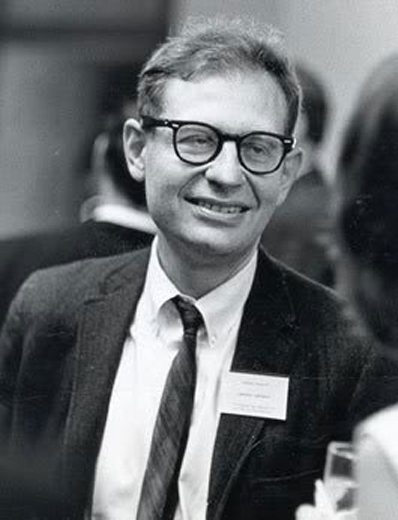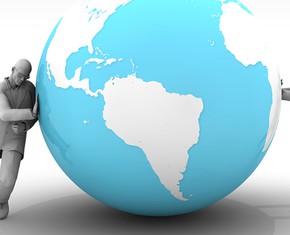The views expressed in our content reflect individual perspectives and do not represent the authoritative views of the Baha'i Faith.
It is now the time in the history of the world for us to strive and give an impetus to the advancement and development of inner forces — that is to say, we must arise to service in the world of morality, for human morals are in need of readjustment. – Abdu’l-Baha, The Promulgation of Universal Peace, p. 325.
In this series of essays about altruism and why we should all strive to develop it, let’s take a brief look now at what the social scientists have to say about behaving in an altruistic and selfless way.
Jean Piaget, and later Lawrence Kohlberg, both developmental psychologists, believed that human beings have definable, identifiable stages of moral development, which frame the entire basis for our ethical behavior as we grow. After Piaget’s initial work in the field of cognitive development, both Kohlberg and the famous psychologist Abraham Maslow came up with separate six-stage models of human moral growth. Kohlberg said that justice is the essential characteristic of moral reasoning; while Maslow believed that moral growth is needs-based, fulfilling developing human needs as morality widens and expands throughout life.
Both Maslow and Kohlberg, in their extensive research, found that human moral growth typically follows a predictable pattern. They realized that it proceeds, like human physical growth, through defined stages, just as we grow from infancy into childhood to adolescence and finally into adulthood.
Kohlberg concluded that we start out at stage one with an obedience and punishment orientation. At this first and simplest stage we judge the morality of our actions by their direct consequences. (Remember reaching into the cookie jar and getting your hand slapped? I do.)
In the second stage of moral development, the ego grows and we move past the obedience/punishment phase to a “what’s in it for me?” phase. Called self-interest, this moral level chiefly serves the individual’s immediate needs, without much regard for their impact on others. Both of these developmental levels typically happen in childhood, and usually pass by the time we’ve become adults.
In the third of Kohlberg’s stages, called interpersonal accord, we’ve grown a little more, and figured out that our moral actions have an impact on others, and on our relationships, too. Often called the “good boy/good girl” or the “conformity” stage, our infantile and childish selfishness begins here to recognize interdependence in relationships, and we realize the importance of getting along with others.
At the fourth stage, called obedience-driven, we begin to follow laws, social conventions and the general moral authority our culture recognizes. In this stage, sometimes called the “law and order” phase, morality is still dictated by an outside force rather than being internally-driven—this is the last stage of what Kohlberg calls the “conventional” levels of moral development. His research showed him that most adults reach this stage and typically do not go on to the next two post-conventional levels.
In stage five, which Kohlberg called the social contract orientation phase, ethical principles begin to develop out of abstract moral reasoning. A higher consciousness emerges. Mutual respect for other opinions, rights and values grows. Most democratic government base their moral outlooks on stage five reasoning, often called the “human rights” level of development.
At stage six, known as universal human ethics, Kohlberg’s highest level of moral development, morality arises out of universal ethical principles and a sense of justice for all people. In stage six, the moral perspective has widened and grown, and the individual acts, not out of fear of punishment or conventional morality, but out of a sense of love, altruism and what is ultimately right.
Can you think of anyone who has reached this level of moral development? When I contemplate this level, I think of my friend Maggie, who truly exemplifies love for all.
At this transcendent stage, Kohlberg says, where the benefit of the individual is replaced entirely by the benefit to the whole species, we find the great altruists. Of course, the Prophets of God, the most dedicated servants of humanity, belong here. The Baha’i teachings ask all of us to aspire to this noble level of human moral development:
I hope that each one of you will become just, and direct your thoughts towards the unity of mankind; that you will never harm your neighbours nor speak ill of any one; that you will respect the rights of all men, and be more concerned for the interests of others than for your own. – Abdu’l-Baha, Paris Talks, p. 159.
The foundation of the Kingdom of God is laid upon justice, fairness, mercy, sympathy and kindness to every soul. Then strive ye with heart and soul to practice love and kindness to the world of humanity at large… – Abdu’l-Baha, Baha’i World Faith, p. 412.
These challenging passages from the Baha’i teachings can seem daunting, hard to achieve, even hard to imagine. But together they frame the third powerful, life-changing argument for developing altruism: because God asks us, in this latest spiritual renewal represented by the coming of a new world religion, to transcend our individual egos, to sacrifice our personal concerns, and to truly love one another, not just in our hearts but in our actions.
How can I, many people think, ever hope to aspire to such a high moral standard?
Well—how did people like Mother Teresa, Albert Schweitzer, Dr. Martin Luther King, Jr., Mahatma Gandhi and Nelson Mandela reach that standard, devoting their lives to altruism and the good of all?
We can only get there, Baha’is believe, with divine assistance.

















Comments
Sign in or create an account
Continue with Googleor